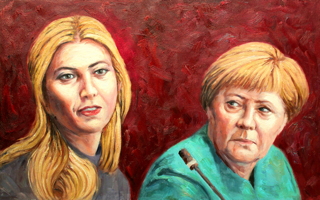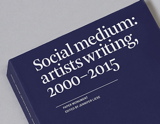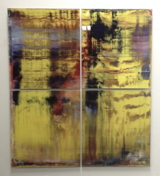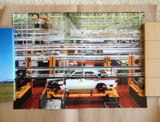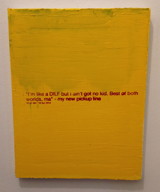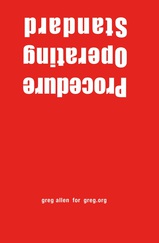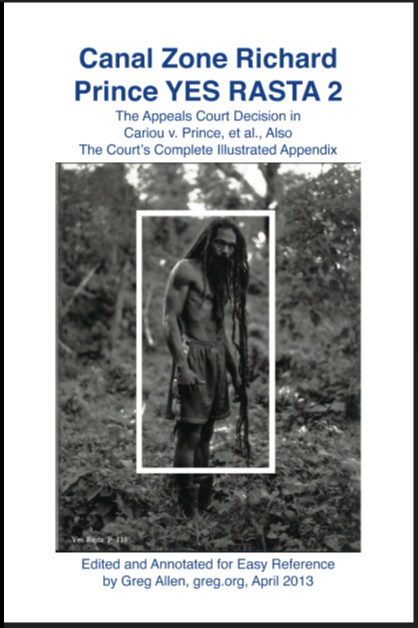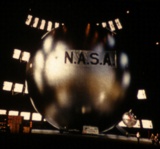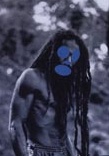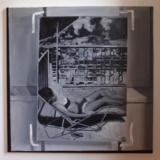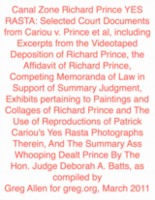Was watching this ancient panel discussion, "Time and Space Concepts in Music and Visual Art," from Pleiades Gallery in 1978 with Merce Cunningham, but then I totally fell for Nam June Paik all over again instead. A couple of pull quotes:
In any other profession like lawyers, dentists, sanitation workers, or teachers, if you do fairly well, slightly above average, you can make a living. But only in art and heavyweight boxing, you have to be top five to pay your rent.And this one, where Paik talks about peoples' complaints that video art is boring, and that it would be hard to write a PhD on the history of video art, because all the material you'd have to sit through would take a hundred years. It's not the random access of an encyclopedia vs the sequential access of video, though, that's strikes a particular chord, but the realization that the panel's participants--Cage, Paik, Cunningham--are now gone [stay healthy, Richard Kostelanetz and Dore Ashton!]:[laughter]
It's strange, especially because in heavyweight boxing, you know more or less who wins. The fight can be fixed, but not as easily as in the art world.
Life, we cannot repeat. Life is sequential access. However, videotape is changing that: life as a sequential access.On another note, it's kind of comforting/ennervating to see that the medium of panel discussion is still sequential, often boring, and characterized by audience essays in the form of a question.If you freeze a time and retrieve them. So you keep certain access--1967, 1955--frozen. Like an icebox. You can go access cheese, butter, eggs. And you can go back to your twentyhood, thirtyhood, childhood, in random access. That, videotape is doing. So the beauty of videotape produced now will be appreciated in 2000. It's like antique hunting.
Time and Space Concepts in Music and Visual Art (Part I) (1978) [ubu]

